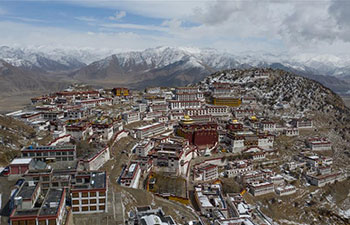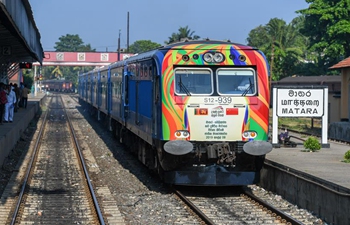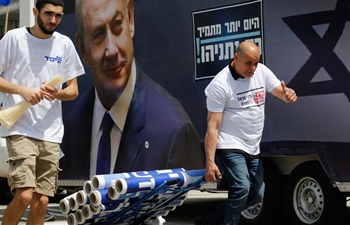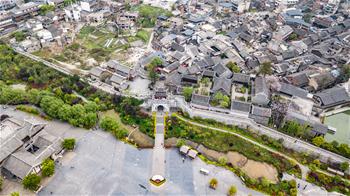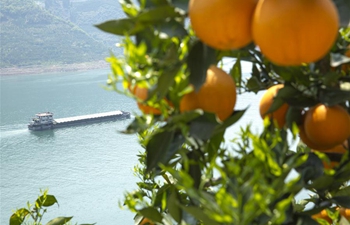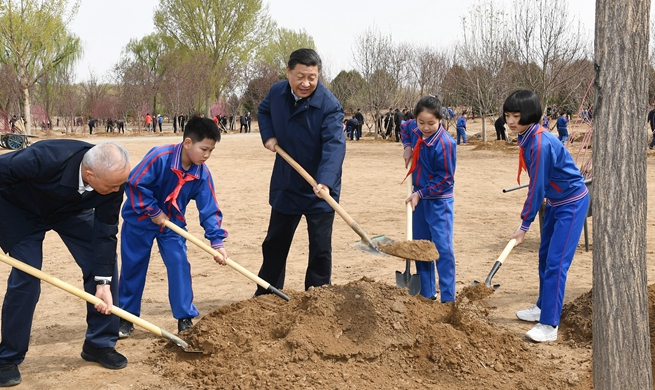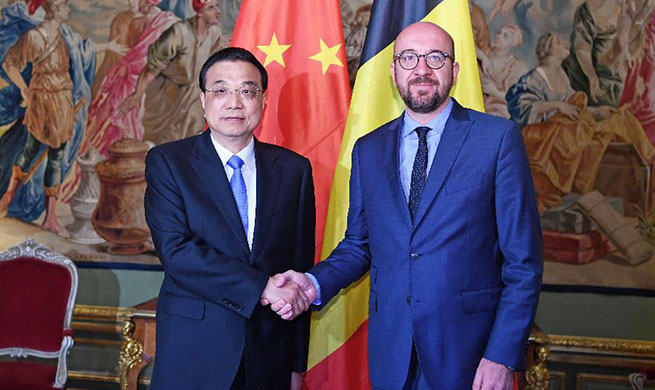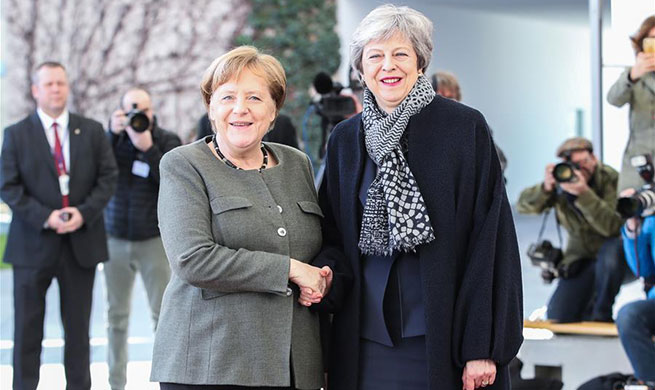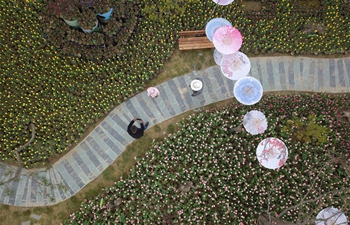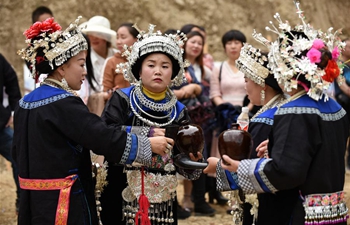RAMALLAH, April 9 (Xinhua) -- Palestinian officials said Tuesday that they did not expect the current Israeli parliamentary elections to bring about major changes in Israel's hardline policy toward the Palestinians.
Ahmad Majdalani, an official of the Palestine Liberation Organization (PLO), told Xinhua that the Palestinians do not "bet on the results" of the Israeli elections.
The dominant political parties in Israel reject the establishment of a Palestinian state, he noted, adding that the right-wing parties refuse the two-solution and vow to annex the Jewish settlements in West Bank.
The ruling Likud Party and its opponent in Israel are "two sides of the same coin" as they both deny the Palestinian rights, Majdalani said.
"Therefore, we cannot rely on them for peace making," he added.
Earlier Tuesday morning, Israeli voters headed to the ballots to vote in the 21st parliamentary elections since Israel was created. The voting will end on 10:00 p.m. local time (1900 GMT) Tuesday.
The major rivalry stands between Prime Minister Benjamin Netanyahu, leader of the right-wing Likud Party, and former military chief Benny Gantz, head of the Blue and White Party.
Nabil Shaath, an aide to Palestinian President Mahmoud Abbas, told Xinhua that the current Israeli elections "are different from the previous ones because the right-wing party is controlling the political scene in Israel."
"In these elections, the left-wing parties are absent," said Shaath. "The candidates are competing on how to assault the Palestinians more cleverly, and how to build more settlements or confiscate more Palestinian lands."
"Therefore, we do not expect much of the results of these elections," he added.
Hazem Qassem, spokesman of the Islamic Hamas movement in Gaza, told Xinhua that his movement "is not interested" in the elections in Israel, and it "does not care" who will win because all Israeli leaders are "the enemies of the Palestinians."
More important than the Israeli internal affairs is the unification of Palestinian political system and putting an end to the Palestinian internal division, said Qassem.
Mustafa al-Barghouti, chairman of the Palestinian National Initiative party, told Xinhua that the Palestinians do not expect any changes in Israeli policy toward the Palestinians after the elections.
"We do not see any difference between one party and another in Israel, because all of them are calling for the continuation of the occupation, the continuation of settlements and the continuation of the confiscation of Palestinian land," al-Barghouti said.
Netanyahu "called for annexing all settlements in the West Bank, destroying the possibility of establishing a Palestinian state," he noted.
Even Netanyahu's major competitor rejects the division of Jerusalem, a solution that comes from peace talks and rejects the establishment of an independent Palestinian state and insists on unilateral actions, he added.
But Abbas expressed hope on Tuesday that the Israeli parliamentary elections will bring a government that believes in making peace with the Palestinians.
"All what we hope is they (Israelis) follow up the right direction and the right track that will bring them to peace," Abbas told reporters in Ramallah.
The peace talks between the Palestinians and Israel have been stalled since 2014 after nine months of U.S.-sponsored talks without reaching an agreement to resolve the decades-long conflict.




